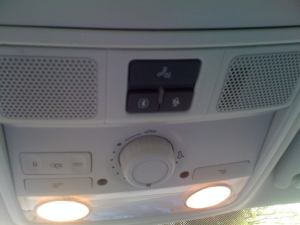The cost of replacing a timing belt in a Volkswagen can range from $500 to $1000. Replacing a timing belt in a Volkswagen can be a costly maintenance expense.
The cost typically falls within a range of $500 to $1000. The timing belt is an essential component of the engine’s operation as it synchronizes the camshaft and crankshaft. Over time, the belt may wear out and require replacement to prevent potential engine damage.
The expense of the replacement includes not only the cost of the belt itself but also the labor involved in removing and installing it. Additionally, other components such as the water pump and tensioner may also be replaced to ensure optimal performance. It is crucial to adhere to the manufacturer’s recommended maintenance schedule to avoid costly engine repairs in the long run.
Understanding The Importance Of Volkswagen Timing Belt Replacement
When it comes to the smooth and efficient operation of your Volkswagen, the timing belt plays a crucial role. A timing belt, also known as a cambelt, is a component that keeps the engine’s valves and pistons in sync. Over time, this belt can wear out or break, leading to serious engine damage. That’s why understanding the importance of Volkswagen timing belt replacement is vital to maintain the performance and longevity of your vehicle.
What Is A Timing Belt?
A timing belt is a narrow, toothed belt made of rubber that connects the crankshaft and the camshaft of an engine. Its purpose is to ensure that the camshaft rotates at the correct speed, allowing the engine’s valves to open and close at the right time. In other words, the timing belt acts as a conductor, synchronizing the movement of various engine parts to ensure optimal performance.
Why Is Timing Belt Replacement Important?
Timing belt replacement is crucial for the overall health and longevity of your Volkswagen’s engine. Over time, the rubber on the timing belt can deteriorate due to heat, age, and exposure to various elements, causing it to weaken and eventually break. If the timing belt fails, it can cause the valves and pistons to collide, leading to severe engine damage. Therefore, regular replacement of the timing belt is essential to prevent costly repairs and keep your Volkswagen running smoothly.
Signs That Your Timing Belt Needs To Be Replaced
Recognizing the signs that your timing belt needs replacement can save you from potential engine damage and costly repairs. Keep an eye out for the following indicators that it’s time to replace your timing belt:
- High-pitched squealing noise coming from the engine
- Engine misfires or runs rough
- Visible cracks, fraying, or damage on the timing belt
- Engine refuses to start
- Significant loss of power while driving
If you notice any of these symptoms, it’s crucial to have your timing belt inspected and replaced if needed. By addressing potential issues early on, you can avoid the inconvenience and expense of major engine repairs down the line.

Credit: www.newyorker.com
Factors Affecting Volkswagen Timing Belt Replacement Cost
The cost of replacing a timing belt in a Volkswagen can vary depending on several factors. Factors like the type of Volkswagen model, the engine size, and the labor cost can all influence the overall cost of a timing belt replacement.
It is recommended to consult with a professional mechanic for an accurate estimate.
Factors Affecting Volkswagen Timing Belt Replacement Cost Model and year of your Volkswagen The model and year of your Volkswagen play a significant role in determining the timing belt replacement cost. Different Volkswagen models have varying levels of complexity when it comes to accessing and replacing the timing belt. Additionally, newer models may require more specialized tools and techniques, adding to the overall cost. Be aware that luxury models or performance variants may also have higher labor rates, further impacting the total expense. Labor costs Labor costs are a key component of the timing belt replacement cost for your Volkswagen.
The amount of time it takes to replace the timing belt can vary depending on both the model and the skill level of the technician. While an experienced and specialized mechanic might complete the job more quickly, their expertise often comes at a higher hourly rate. It’s essential to find a reputable and qualified mechanic who can balance both efficiency and expertise to keep labor costs reasonable. Additional parts and services In addition to the timing belt itself, there are additional parts and services that can influence the overall cost of the replacement. For example, some technicians recommend replacing other components, such as the water pump or tensioner, while the timing belt is being replaced. These additional parts add to the overall expense, but they can help prevent potential issues and extend the life of your Volkswagen’s engine. Additionally, other services like a full inspection or fluid replacement might be recommended during the timing belt replacement, further increasing the cost.
TABLE: Comparison of Additional Parts and Services
| Service/Part | Estimated Cost |
| Water Pump | $100 – $300 |
| Tensioner | $100 – $300 |
| Inspection | $50 – $100 |
| Fluid Replacement | $50 – $200 |
Remember, it’s important to consider these additional parts and services when budgeting for your Volkswagen timing belt replacement. Although they may increase the upfront cost, they can potentially save you money in the long run by preventing future problems and ensuring optimal performance. By understanding the factors affecting the cost of Volkswagen timing belt replacement, such as the model and year of your vehicle, labor costs, and additional parts and services, you will be better equipped to make informed decisions about maintaining your car. Keeping up with routine maintenance and addressing timing belt replacement when necessary can help you avoid costly repairs down the road and keep your Volkswagen running smoothly for years to come.
Insider Tips To Save Money On Volkswagen Timing Belt Replacement
When it comes to maintaining your Volkswagen, one of the regular maintenance tasks you shouldn’t overlook is the timing belt replacement. While this maintenance task is essential for ensuring the longevity and performance of your vehicle, it can also be quite costly. However, there are several insider tips you can follow to save money on Volkswagen timing belt replacement. In this article, we will share these valuable tips that can potentially help you lower your overall costs for this necessary maintenance task.
Choose An Independent Mechanic Instead Of A Dealership
If your Volkswagen is no longer under warranty, choosing an independent mechanic instead of a dealership can save you significant money on timing belt replacement. Independent mechanics often have lower labor rates compared to authorized dealerships. Additionally, they may use quality aftermarket parts that can be more affordable than the parts offered by the dealership. By opting for an independent mechanic, you can still receive reliable service while reducing the overall cost of your timing belt replacement.
Compare Prices From Different Service Providers
Before settling on a particular service provider for your Volkswagen timing belt replacement, take the time to compare prices from various mechanics and auto repair shops. Reach out to different service providers and request quotes for the entire job, including parts and labor. This will give you a clear idea of the average cost and help you identify any outliers in pricing. Comparing prices will enable you to choose the most cost-effective option without compromising on the quality of the service.
Consider Purchasing Your Own Parts
Another way to save money on Volkswagen timing belt replacement is by purchasing your own parts. Instead of relying on the mechanic or service provider to source the parts for you, take the initiative to find and purchase them yourself. This way, you can shop around for the best prices on genuine or high-quality aftermarket parts. Just make sure to communicate your intention with the mechanic beforehand, as they may have certain restrictions or warranties tied to using their supplied parts. By purchasing your own parts, you have better control over the price and can potentially save on the markup typically added by service providers.

Credit: www.newyorker.com

Credit: www.amazon.com
Frequently Asked Questions On Volkswagen Timing Belt Replacement Cost
What Is The Average Cost Of Replacing A Volkswagen Timing Belt?
The average cost of replacing a Volkswagen timing belt can range from $500 to $1,000. The exact cost will depend on factors such as the model of your Volkswagen, the labor costs in your area, and whether any additional repairs are needed during the replacement process.
Why Is It Important To Replace A Volkswagen Timing Belt?
Replacing the timing belt in your Volkswagen is crucial because it plays a vital role in the engine’s operation. A worn or broken timing belt can cause extensive damage to your engine, resulting in costly repairs. Regular replacement of the timing belt ensures proper engine performance and prevents potential breakdowns.
How Often Should The Timing Belt Be Replaced In A Volkswagen?
In general, it is recommended to replace the timing belt in a Volkswagen every 60,000 to 100,000 miles or every 5 to 7 years, whichever comes first. However, it is best to consult your Volkswagen’s owner’s manual or a certified mechanic for the specific timing belt replacement interval for your vehicle model.
How Often Should The Timing Belt Be Replaced In A Volkswagen?
In general, it is recommended to replace the timing belt in a Volkswagen every 60,000 to 100,000 miles or every 5 to 7 years, whichever comes first. However, it is best to consult your Volkswagen’s owner’s manual or a certified mechanic for the specific timing belt replacement interval for your vehicle model.
Q: What is the average cost of replacing a timing belt on a Volkswagen Jetta?
A: The average cost of replacing a timing belt on a Volkswagen Jetta ranges from $400 to $900, including parts and labor.
Q: When should I consider replacing the timing belt on my Volkswagen Jetta?
A: It is recommended to replace the timing belt on your Volkswagen Jetta every 60,000 to 100,000 miles, depending on the model year and engine type.
Q: How do I know if my Volkswagen Jetta’s timing belt needs to be replaced?
A: Signs that your Volkswagen Jetta’s timing belt needs to be replaced include engine misfires, unusual noises from the engine, and visible wear on the belt.
Q: Can I replace the timing belt on my Volkswagen Jetta myself?
A: While it is possible to replace the timing belt on your Volkswagen Jetta yourself, it is recommended to have it replaced by a professional mechanic to ensure the job is done correctly and to avoid potential engine damage.
Q: Where is the best place to get the timing belt on my Volkswagen Jetta replaced?
A: The best place to get the timing belt on your Volkswagen Jetta replaced is at a reputable auto repair shop that specializes in Volkswagen vehicles or at a Volkswagen dealership.
Q: What are the consequences of not replacing a failing timing belt on my Volkswagen Jetta?
A: Not replacing a failing timing belt on your Volkswagen Jetta can result in severe engine damage, including bent valves, damaged pistons, and costly repairs.
Q: How long does it take to replace the timing belt on a Volkswagen Jetta?
A: The timing belt replacement process for a Volkswagen Jetta typically takes between 4 to 6 hours for a professional mechanic to complete.
Q: What are the common symptoms of a failing timing belt on a Volkswagen Jetta?
A: Common symptoms of a failing timing belt on a Volkswagen Jetta include engine misfires, engine vibration, and the check engine light illuminated on the dashboard.
Q: Is it necessary to replace the accessory belts when replacing the timing belt on a Volkswagen Jetta?
A: It is recommended to replace the accessory belts, such as the serpentine belt, when replacing the timing belt on a Volkswagen Jetta to ensure optimal performance and reliability.
Q: What types of tools are needed to replace the timing belt on a Volkswagen Jetta?
A: The tools needed to replace the timing belt on a Volkswagen Jetta typically include a wrench set, pulley and idler tools, and specific tools for holding the crankshaft and camshaft in place.
Conclusion
Replacing the timing belt in your Volkswagen is an essential maintenance task that ensures the smooth operation of the engine. As we have discussed, the cost of timing belt replacement can vary depending on various factors such as the model of your vehicle, the labor charges, and the location of the repair shop.
It is best to consult with a trusted mechanic to get an accurate estimate for the cost. Remember, regular maintenance and timely replacement of the timing belt can prevent expensive engine damage in the long run. Stay on top of your Volkswagen’s maintenance to keep it running efficiently and reliably.


